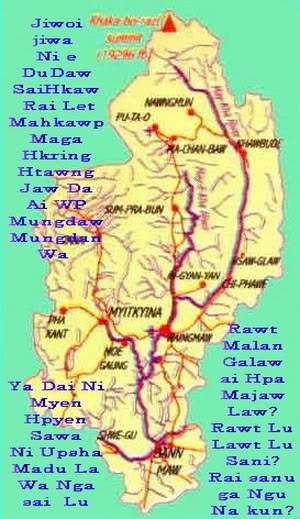BANGKOK — UN Secretary-General Ban Ki-moon started a four-country Asian tour Tuesday in Bangkok, where tight security was in place to prevent anti-government protesters from "embarrassing" Thailand in front of the UN chief.
The country's army chief, Gen Prayuth Chan-ocha, warned so-called Redshirt protesters who staged paralyzing protests earlier this year that rallies were "absolutely prohibited" during Ban's visit.
"This is about Thailand's image," Prayuth told reporters ahead of Ban's arrival. He said protesters were welcome to send a petition to Ban through representatives. "Whatever you do must be civilized. (Protesters) cannot gather in a big group and cause trouble to the people with foreigners watching. It would be embarrassing."
About 1,000 police were mobilized for security at Ban's hotel, the prime minister's office and the UN headquarters in Bangkok, said national police spokesman Prawut Thawornsiri.
Ban's one-day stopover in Bangkok was to include a meeting and luncheon with Prime Minister Abhisit Vejjajiva, followed by talks with UN officials in the Thai capital. He heads later Tuesday to Cambodia, followed by Vietnam for a weekend summit of Asian leaders. His last stop will be China.
At the height of Thailand's political violence in May, Ban appealed to both sides to "do all within their power to avoid further violence and loss of life."
At least 91 people died and 1,400 were injured in violence connected to protests that lasted from March through May, staged by Redshirt protesters demanding Abhisit call early elections. The protesters blockaded Bangkok's commercial heart for weeks before the army moved in to clear the streets. Most of the casualties were protesters.
Political tensions remain in Thailand. Protesters said they wanted to seek Ban's help in ending "human rights abuses" in Thailand, including the continued detention of protest leaders, a crackdown on anti-government Internet sites and publications and the continuation of a state of emergency in Bangkok that was imposed during the protests. The decree gives authorities broad powers to deal with protesters and places restrictions on civil liberties.
Human Rights Watch issued a statement urging Ban to use his Asian tour "to publicly address pressing human rights issues in the region."
The country's army chief, Gen Prayuth Chan-ocha, warned so-called Redshirt protesters who staged paralyzing protests earlier this year that rallies were "absolutely prohibited" during Ban's visit.
"This is about Thailand's image," Prayuth told reporters ahead of Ban's arrival. He said protesters were welcome to send a petition to Ban through representatives. "Whatever you do must be civilized. (Protesters) cannot gather in a big group and cause trouble to the people with foreigners watching. It would be embarrassing."
About 1,000 police were mobilized for security at Ban's hotel, the prime minister's office and the UN headquarters in Bangkok, said national police spokesman Prawut Thawornsiri.
Ban's one-day stopover in Bangkok was to include a meeting and luncheon with Prime Minister Abhisit Vejjajiva, followed by talks with UN officials in the Thai capital. He heads later Tuesday to Cambodia, followed by Vietnam for a weekend summit of Asian leaders. His last stop will be China.
At the height of Thailand's political violence in May, Ban appealed to both sides to "do all within their power to avoid further violence and loss of life."
At least 91 people died and 1,400 were injured in violence connected to protests that lasted from March through May, staged by Redshirt protesters demanding Abhisit call early elections. The protesters blockaded Bangkok's commercial heart for weeks before the army moved in to clear the streets. Most of the casualties were protesters.
Political tensions remain in Thailand. Protesters said they wanted to seek Ban's help in ending "human rights abuses" in Thailand, including the continued detention of protest leaders, a crackdown on anti-government Internet sites and publications and the continuation of a state of emergency in Bangkok that was imposed during the protests. The decree gives authorities broad powers to deal with protesters and places restrictions on civil liberties.
Human Rights Watch issued a statement urging Ban to use his Asian tour "to publicly address pressing human rights issues in the region."




No comments:
Post a Comment